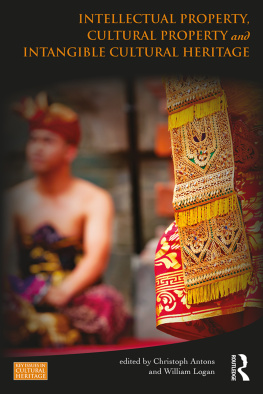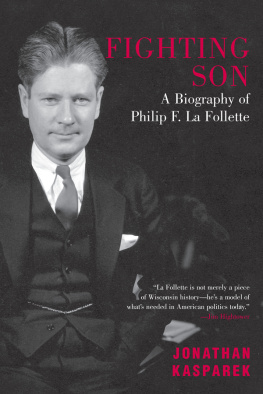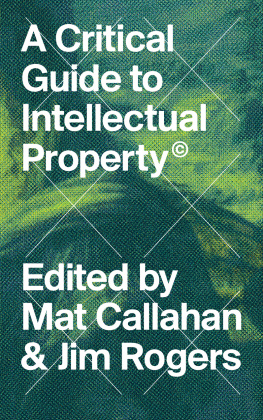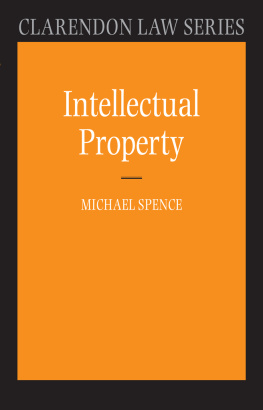Follette - Negotiating culture heritage, ownership, and intellectual property
Here you can read online Follette - Negotiating culture heritage, ownership, and intellectual property full text of the book (entire story) in english for free. Download pdf and epub, get meaning, cover and reviews about this ebook. City: Amherst etc, year: 2014;2013, publisher: University of Massachusetts Press, genre: Politics. Description of the work, (preface) as well as reviews are available. Best literature library LitArk.com created for fans of good reading and offers a wide selection of genres:
Romance novel
Science fiction
Adventure
Detective
Science
History
Home and family
Prose
Art
Politics
Computer
Non-fiction
Religion
Business
Children
Humor
Choose a favorite category and find really read worthwhile books. Enjoy immersion in the world of imagination, feel the emotions of the characters or learn something new for yourself, make an fascinating discovery.

- Book:Negotiating culture heritage, ownership, and intellectual property
- Author:
- Publisher:University of Massachusetts Press
- Genre:
- Year:2014;2013
- City:Amherst etc
- Rating:5 / 5
- Favourites:Add to favourites
- Your mark:
- 100
- 1
- 2
- 3
- 4
- 5
Negotiating culture heritage, ownership, and intellectual property: summary, description and annotation
We offer to read an annotation, description, summary or preface (depends on what the author of the book "Negotiating culture heritage, ownership, and intellectual property" wrote himself). If you haven't found the necessary information about the book — write in the comments, we will try to find it.
Follette: author's other books
Who wrote Negotiating culture heritage, ownership, and intellectual property? Find out the surname, the name of the author of the book and a list of all author's works by series.
Negotiating culture heritage, ownership, and intellectual property — read online for free the complete book (whole text) full work
Below is the text of the book, divided by pages. System saving the place of the last page read, allows you to conveniently read the book "Negotiating culture heritage, ownership, and intellectual property" online for free, without having to search again every time where you left off. Put a bookmark, and you can go to the page where you finished reading at any time.
Font size:
Interval:
Bookmark:
Negotiating Culture

Negotiating Culture

Heritage, Ownership, and Intellectual Property

EDITED BY
Laetitia La Follette
University of Massachusetts Press
AMHERST AND BOSTON
Copyright 2013 by University of Massachusetts Press
All rights reserved
Printed in the United States of America
ISBN 978-1-62534-008-5 (paper); 007-8 (hardcover)
Designed by Sally Nichols
Set in Adobe Caslon Pro
Printed and bound by Thomson-Shore, Inc.
Library of Congress Cataloging-in-Publication Data
Negotiating culture : heritage, ownership, and intellectual property / edited by Laetitia La Follette.
pages cm
Includes bibliographical references and index.
ISBN 978-1-62534-008-5 (pbk. : alk. paper) ISBN 978-1-62534-007-8 (hardcover : alk. paper) 1. Cultural propertyProtectionCase studies. 2. Cultural propertyMoral and ethical aspectsCase studies. 3. Cultural propertyRepatirationCase studies. 4. Intellectual propertyMoral and ethical aspectsCase studies. 5. Anthropological ethics I. La Follette, Laetitia Amelia, author, editor of compilation.
CC135.N44 2013
363.6'9dc23
2013015186
British Library Cataloguing in Publication Data
A catalogue record for this book is available from the British Library.
Cover: Roman statue of the goddess Peace (1st century CE), excavated at Palombara Sabina in Latium, one of the long-term loans made to American museums in exchange for the return of contested antiquities. Photo: Museum of Fine Arts, Boston, courtesy of Dr. Zaccaria Mari, Soprintendenza per I Beni Archeologici del Lazio. Reproduced by permission.
CONTENTS
NEGOTIATING OWNERSHIP CLAIMS
Changing Attitudes toward Cultural Property
Laetitia La Follette
THE POLITICS OF ARCHAEOLOGY
Heritage, Ownership, and Repatriation
Joe Watkins
Laetitia La Follette
THE SALAMANCA PAPERS
A Cultural Property Episode in Post-Franco Spain
Oriol Pi-Sunyer and Susan M. DiGiacomo
Margaret Speas
H. Martin Wobst
RE-OWNING THE PAST
DNA and the Politics of Belonging
Banu Subramaniam
DIGITAL COMMONS
The Rise of New Models of Collaborative Ownership
David Bollier
Stephen Clingman
Negotiating Culture

INTRODUCTION
NEGOTIATING OWNERSHIP CLAIMS
Changing Attitudes toward Cultural Property

Laetitia La Follette
R IVAL CLAIMS IN the realm of culture represent some of the most contentious issues in the world today, appearing in the news on a weekly if not daily basis. Some of the highest-profile cases have involved disputes over material objectsNative American remains, Greek and Roman antiquities, works of art looted by the Naziswith important repercussions for museums as well as the disciplines of anthropology, archaeology, and art history. But debates over the ownership and control of nontangible cultural property are also shaping fields as diverse as economics, history, genetic studies, linguistics, and philosophy. The results are changing attitudes toward ownership, calling attention to the need for dialogue, negotiation, and collaboration over contested cultural property.
The burgeoning interest in cultural ownership is also reflected in the proliferation of college courses and university masters-degree programs devoted to aspects of this topic. While coverage by the media tends to stress the opposing sides of a given conflict, often further inflaming passions rather than suggesting a path to resolution, much of the academic literature on cultural heritage has become highly specialized, with significant bibliography in anthropology, cultural heritage management, legal studies, museum studies, and public art issues, but little dialogue across these areas.
The aim of this book is to offer both a broader and a deeper approach, allowing the readerinterested layperson, advanced undergraduate, engaged graduate student, or even the professional somewhat familiar with some of these issuesthe chance to pursue the subject of owning culture in a variety of contexts. It brings together a series of case studies by preeminent scholars, each focusing on a particular example of cultural ownershipfrom contests over tangible artifacts to those over more abstract forms of culture, such as language and oral traditions, to current studies of DNA and genes that combine nature and culture, to new nonproprietary economic and political models. In time and space, the material discussed extends from prehistoric North America to fascist and Republican Spain, from the Greco-Roman Mediterranean to Vedic India, from discrete Indigenous communities to the contemporary technological revolutions of global cyberspace. Each essay sets the debate in question in its historical and disciplinary context to illustrate the arena(s) in which such disputes arise, show how they have been approached, and suggest ways in which these approaches are changing or should change.
Intended as a tool with which to begin, or continue, exploration into the very timely issues of cultural heritage and intellectual property, Negotiating Culture stresses the importance of dialogue and careful listening as prerequisites to the negotiations and collaborations such disputes entail. One of the most innovative aspects of the volume is the way each author recognizes the social dimensions of group ownership and demonstrates the need for renegotiation and new models. Taken as a whole, the collection challenges the reader to reevaluate traditional ways of thinking about cultural ownership, such as those that focus solely on legal aspects, and stresses the importance of the broader social contexts within which negotiation over the ownership of culture is taking place.
The unusual interdisciplinary nature of this volume owes its origins to a sustained series of conversations on the topic of cultural ownership hosted by the Interdisciplinary Seminar in the Humanities and Fine Arts (ISHA) at the University of Massachusetts Amherst in 20062007. The diversity of contributors to the initial seminar made its discussions an exercise in interdisciplinary practice, and the collaborative nature of the enterprise has had lasting effect on the composition and contents of the final volume. Two essays, one by Margaret Speas on Navajo language revitalization and the other by Joe Watkins on Native American remains, were invited to supplement the chapters contributed by members of the original seminar, to showcase in particular the way thinking about Indigenous cultural property is changing. Many of the authors address the way academic boundaries are constructed and how we negotiate and interact across them. This includes the recognition that while different kinds of knowledge have their own authority, the exchanges that take place between such diverse forms of knowledge can be both rewarding and fruitful. Although each essay is grounded in disciplinary practice, the topics have far-reaching consequences beyond the academy.
The chapters have been grouped into three parts. , The Politics of Archaeology: Heritage, Ownership, and Repatriation, by Joe Watkins (an Indigenous archaeologist and a member of the Choctaw Nation of Oklahoma), examines disputes over the repatriation of sensitive American Indian material in the wake of the Native American Graves Protection and Repatriation Act of 1990 (NAGPRA). This legislation set up the mechanism whereby federally recognized Indian tribes, Native Hawaiian organizations, and Alaska Native corporations may petition federal agencies and federally funded museums for the return of human remains and particular classes of Native American artifacts. In his analysis of the cultural disputes NAGPRA has attempted to resolve as well as those it has exacerbated, Watkins calls attention to the long history of mistrust and broken promises between American Indians and federal authorities, and the striking way that history has been ignored in disputes over Native American human remains. Indeed, Watkins notes that it was not until 1979 that the federal government mandated that archaeologists consult with American Indian tribes prior to conducting excavations on lands those tribes owned or controlled.
Next pageFont size:
Interval:
Bookmark:
Similar books «Negotiating culture heritage, ownership, and intellectual property»
Look at similar books to Negotiating culture heritage, ownership, and intellectual property. We have selected literature similar in name and meaning in the hope of providing readers with more options to find new, interesting, not yet read works.
Discussion, reviews of the book Negotiating culture heritage, ownership, and intellectual property and just readers' own opinions. Leave your comments, write what you think about the work, its meaning or the main characters. Specify what exactly you liked and what you didn't like, and why you think so.









